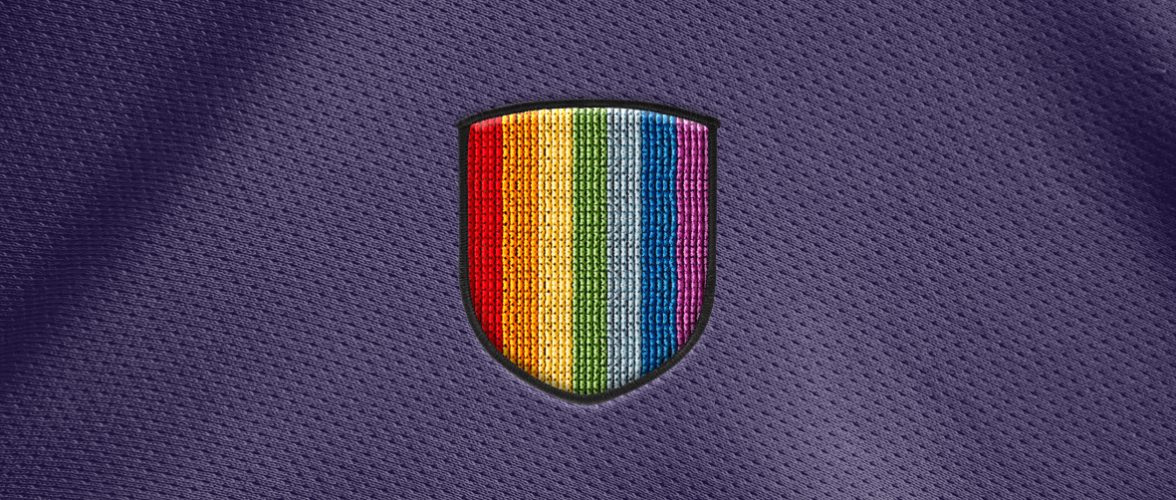A version of this article first appeared in Fast Company
When Nashville Predators prospect Luke Prokop made history this week becoming the first openly gay active player in the NHL, the statements of support came swiftly from the 19-year-old’s team and league. Official team Twitter accounts across the National Hockey League expressed welcome and encouragement, collected on the hashtag #HockeyIsForEveryone. Key league executives rallied around Prokop as well, including NHL Commissioner Gary Bettman and National Hockey League Players’ Association Executive Director Don Fehr, applauding Prokop’s example and bravery.
For a preview of what the broader reaction from fans and the public might mean for the NHL and its leaders, one might look no further than last month, and to new public opinion and reputation research regarding a similar announcement in the NFL.
With the news of Las Vegas Raiders defensive end Carl Nassib coming out as the first openly gay active NFL player, corporate reputation strategy firm Purple Strategies surveyed members of the U.S. Informed Public (n=1,001 adults 18+ who follow the news regularly) to learn how the announcement and official responses changed the informed public’s views of the National Football League. If what’s past is pre-game, the NHL might expect to enjoy a reputational boost from its actions surrounding Prokop’s historic moment.
In the Purple Strategies research, the NFL is seen gaining credibility with the public for proudly embracing Nassib and amplifying a message of inclusion and acceptance. Half (50%) of the informed public said the NFL’s statement and actions made them have a more favorable opinion of the NFL, and more than half (53%) said they would be proud to say they work for such an organization. For roughly two-thirds of those surveyed, the NFL’s response would spur them to take positive action on the league’s behalf, with 63% saying it would make them likely to speak positively about the NFL on social media, and 69% saying it would lead them to speak positively about the NFL to family or friends.
And these results cut across party lines for younger adults, reflecting a generation that is growing as a share of the U.S. population and broadly more supportive of sports and other organizations taking a stance on issues of inclusion and acceptance. Taking as an example the impact the NFL’s announcement had on the informed public’s likelihood to use or buy NFL products (e.g., watching games, buying merchandise), overall, the results vary widely between Democrats (75% more likely) and Republicans (44% more likely). However, for those age 18 to 34, that gap shrinks considerably (76% more likely among Democrats, 59% more likely among Republicans), leaving a meaningful majority of both parties within the younger demographic ready to take action in support of the NFL.
Nassib’s news registered widely, with almost half of the informed public being aware of the story and the conversation expanding to audiences who may not typically spend time with the sports page. The Nassib announcement earned higher awareness than many other big news stories that week, with 45% of those surveyed saying they had heard the story, and 44% associating the NFL with making a statement and taking action on the topic. High-profile figures tweeted support for Nassib including President Joe Biden, Jemele Hill, George Takei, and Billy Eichner. And LGBTQ+ media outlets like Pink News raised awareness of the NFL’s social position to a broader audience.
Although the NFL has garnered criticism for its handling of certain social issues, gay rights advocates were overwhelmingly positive in response to the latest news. LGBTQ+ organizations like Outsports and The Trevor Project tweeted gratitude to the NFL, adding credibility to the organization in the conversation. That credibility set the stage for authentic storytelling from LGBTQ+ supporters, many of whom expressed their gratitude for representation in the NFL, shared their experiences being gay and playing football, and said these actions would save lives.
By way of comparison, the NCAA also made news around the same time, but did not benefit from similar reputational uplift. The organization’s handling of recent and ongoing issues (e.g., gender and pay equity, compensating players) put the embattled organization on an increasingly descendant path with almost 4 out of 10 Americans believing the NCAA’s best days are behind it, and almost 5 out of 10 of those polled believing the organization is “part of the problem to issues facing college athletics.” Unlike the NFL and potentially now the NHL, the NCAA continues to miss opportunities to meet the moment.
An important lesson for all organizations – and not just sports organizations – is that the playing field has expanded in terms of issues and audiences that warrant careful monitoring, analysis and engagement. It’s not hard to empathize with the challenges facing institutions to overcome the fear of public criticism and manage rapidly changing expectations today, but this research points to an emerging truth: attempting to stall or reverse progress and equity – be it the acceptance of a professional athlete who is a member of the LGBTQ+ community or NCAA athletes being compensated for the use of their image and likeness – is a losing proposition.
Source: Purple Omnibus Survey of the US Informed Public. n=1001. June 25-28, 2021.
By Rebecca Ballard | Managing Director

 AI and Paradigm Shifts on the Minds of Healthcare CEOs
AI and Paradigm Shifts on the Minds of Healthcare CEOs  Purple Strategies Elevates Three To Partnership Group
Purple Strategies Elevates Three To Partnership Group